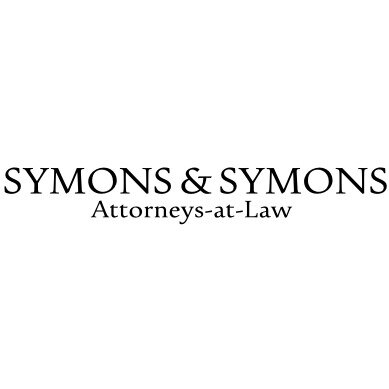Best Nonprofit & Charitable Organizations Lawyers in West Bay
Share your needs with us, get contacted by law firms.
Free. Takes 2 min.
List of the best lawyers in West Bay, Cayman Islands
About Nonprofit & Charitable Organizations Law in West Bay, Cayman Islands
The Cayman Islands, known for its robust financial sector, also supports a diverse range of nonprofit and charitable organizations. In West Bay, as elsewhere in the Cayman Islands, these organizations play a crucial role in addressing social, economic, and environmental issues. Nonprofits are typically established as companies limited by guarantee and are bound by rules and regulations as set out by the Cayman Islands Government to ensure transparency, accountability, and proper governance practices.
Why You May Need a Lawyer
There are several reasons why individuals or organizations may require legal assistance in this field. These include navigating the complex registration process, ensuring compliance with local laws, handling tax-related issues, managing governance concerns, drafting bylaws, or dealing with disputes among founders or board members. Legal expertise is also important in establishing a charity, securing donor agreements, and ensuring that all operational activities align with stated charitable objectives.
Local Laws Overview
Nonprofit and charitable organizations in West Bay must comply with the local laws regulated by the Cayman Islands Government. The Non-Profit Organisations Law, 2017 (as revised) is one of the crucial legislative frameworks governing these entities. This law mandates registration with the General Registry, annual filing of basic information, and adherence to anti-money laundering regulations. Additionally, nonprofits are required to maintain accurate financial records and are subject to auditing requirements, ensuring transparency and accountability.
Frequently Asked Questions
What is required to register a nonprofit organization in West Bay?
Registration involves submitting an application to the General Registry, including details such as the name of the organization, purpose, directors, and registered office. Additional documents like a copy of the constitution or articles of association are also required.
Are there any tax benefits for nonprofit organizations in the Cayman Islands?
While the Cayman Islands do not levy direct taxes, nonprofits benefit from other types of exemptions, such as import duty waivers. However, engaging a lawyer can help ensure you maximize any available incentives.
What types of nonprofit structures are available in the Cayman Islands?
The most common structure is a company limited by guarantee, allowing the organization to limit the liability of members and pursue its non-commercial objectives efficiently.
How can a nonprofit organization comply with anti-money laundering regulations?
Nonprofits must have proper systems in place to detect and prevent money laundering or terrorism financing. This includes conducting proper due diligence on donors and beneficiaries.
Are annual audits mandatory for nonprofit organizations?
While not all nonprofits are subject to mandatory audits, many larger organizations conduct audits to ensure integrity and build donor trust. Specific requirements may depend on the organization’s size and activities.
What kind of governance structure is needed for a nonprofit in West Bay?
Strong governance is essential, typically involving a board of directors that oversees the organization's activities, ensures compliance with laws, and holds management accountable.
How can nonprofit organizations raise funds legally?
Organizations can pursue various fundraising activities, including donations, grants, sponsorships, and events, as long as these adhere to legal and regulatory requirements.
What should be included in a nonprofit's constitution or articles of association?
This foundational document should define the organization's purpose, governance structure, member roles, and procedures for decision-making and conflict resolution.
Can foreign nonprofits operate in West Bay?
Foreign nonprofits can operate, but they must comply with local registration requirements and laws, often involving partnership with local entities.
What steps are involved in dissolving a nonprofit organization?
Dissolution requires a resolution from the board of directors, settling of all liabilities, and distribution of remaining assets according to the organization's articles of association, followed by de-registration with the authorities.
Additional Resources
For further assistance, consider reaching out to the General Registry of the Cayman Islands, the Cayman Islands Department for Financial Services, or local legal firms specializing in nonprofit law. Educational workshops and seminars organized by these entities can also provide valuable insights into managing and operating a nonprofit successfully.
Next Steps
If you need legal assistance with a nonprofit or charitable organization in West Bay, consider scheduling a consultation with a lawyer specializing in this field. Preparing relevant documents and questions in advance can facilitate a productive meeting. Additionally, keep abreast of any legislative updates that may impact your organization by frequently reviewing resources and professional communications.
Lawzana helps you find the best lawyers and law firms in West Bay through a curated and pre-screened list of qualified legal professionals. Our platform offers rankings and detailed profiles of attorneys and law firms, allowing you to compare based on practice areas, including Nonprofit & Charitable Organizations, experience, and client feedback.
Each profile includes a description of the firm's areas of practice, client reviews, team members and partners, year of establishment, spoken languages, office locations, contact information, social media presence, and any published articles or resources. Most firms on our platform speak English and are experienced in both local and international legal matters.
Get a quote from top-rated law firms in West Bay, Cayman Islands — quickly, securely, and without unnecessary hassle.
Disclaimer:
The information provided on this page is for general informational purposes only and does not constitute legal advice. While we strive to ensure the accuracy and relevance of the content, legal information may change over time, and interpretations of the law can vary. You should always consult with a qualified legal professional for advice specific to your situation.
We disclaim all liability for actions taken or not taken based on the content of this page. If you believe any information is incorrect or outdated, please contact us, and we will review and update it where appropriate.











